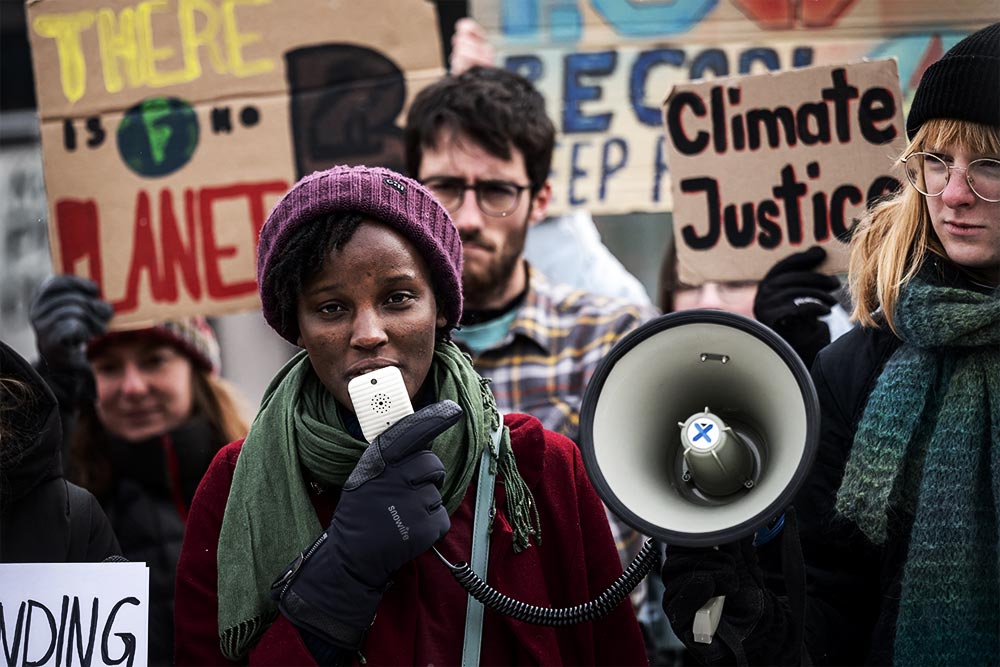Our experts outline ten key global topics and trends that businesses need to consider in 2023.
1. Ukraine conflict – no end in sight
The conflict in Ukraine will persist, with fresh offensives from Russia and Ukraine expected in the coming months. Despite growing economic pressures, military setbacks and changes in the military leadership, Russia shows no interest in moving away from its objectives, yet. Neither Ukraine nor NATO believes that Ukraine can survive another year under constant bombardment, driving the decision of Western allies to send advanced military equipment, perhaps to secure a stronger position for Ukraine from which to negotiate in any future peace talks.
Conflict escalation indicators to monitor include the nature of military support being extended to Ukraine and Russia by third parties, significant territorial gains by either side, allegations of human rights abuses and the status of Crimea.
Sanctions linked to the conflict will not be eased any time soon and are likely to be expanded. Companies need to consider accidents and miscalculation when assessing the escalation and spillover risk, as well as the elevated risk of asymmetric retaliation against Europe (e.g., cyber attacks) as Russia seeks to re-establish deterrence.
The process of decoupling politically and economically from Russia will continue to unravel the geoeconomic order, with Moscow seeking even closer ties to Asia. The global economic impact of the conflict will remain significant, driving commodity market volatility and inflation rates.
2. Geopolitical competition between the US and China
As featured in our RiskMap 2023 Top Risks, military conflict between China and the US remains unlikely in 2023, but the increasingly sour relationship will remain a defining feature of geopolitics. Strategic competition will intensify, with both countries striving for greater self-sufficiency, especially in the technology and military spheres. The US will continue using legislation and international initiatives to re-shore its strategic dependencies, seeking to limit China’s access to technology and capital markets. The antagonistic position towards China remains one of the few topics that enjoys bipartisan support in the politically divided US. Beijing will use regulations to deter and react to US foreign policies it considers to be provocative (e.g., new export controls). A geopolitically assertive China will seek closer collaboration with non-aligned countries and those that are currently more US-leaning. Taiwan will remain a focal point of contention in US-China tensions.
3. Commodities crunch
As China’s economy picks up pace and Europe needs to secure energy supplies for the year ahead, global competition for commodities will intensify. China’s energy demands and its need for metals and minerals are set to rise as the government tries to push the economy back toward pre-COVID levels. Beijing’s quest for growth will be aided by access to Russian cheap oil. Warm weather and full energy stores saved Europe from an acute crisis this winter. But European countries have limited time to prepare for the next cold season without Russian gas. Refined fuels – especially diesel – will be particularly costly as global refining capacity remains both inadequate and poorly placed on the new fractured energy map. LNG supplies – on which Europe will increasingly rely – will be particularly contested.
4. Global economic slowdown
Global growth will slow in 2023. Although economic experts differ over the intensity and longevity of the crisis (most see improvements coming in 2024), everyone agrees that many economies will suffer. Dozens of governments have raised interest rates in recent months, but inflation rates are likely to remain high which will drive civil unrest incidents globally. A global economic slowdown will lead many governments to introduce higher taxes, and countries will experience unemployment and higher crime rates, including a rise in cyber crime.
5. Debt crisis
Rising interest rates and a strong US dollar have made imports and sovereign debt servicing more expensive for many countries. By analysing sovereign spreads and foreign debts and reserves data from the IMF and our partner Oxford Economics, we warn that Argentina, Bahamas, Cameroon, Egypt, El Salvador, Ethiopia, Kenya, Tajikistan, Tunisia and Ukraine are likely to come under debt distress. Finding solutions to the debt crisis will bring further political pressures on governments - Ghana and Pakistan already show signs. Political instability and social unrest risks will increase as governments lack hard currency for imports or are forced to cut spending. Nevertheless, the financial struggles of these smaller economies are unlikely to prompt wider global financial instability.
6. Climate politics
Climate-related natural disasters will continue to disrupt business operations worldwide in 2023 and companies must continue to focus on resilience to both natural hazards and changing political risks. The global focal point for climate politics, the UN Climate Change Conference (COP28), will take place in Dubai (UAE), 30 November - 12 December. The UAE will use the conference to gain geopolitical weight and announce new international renewables projects. However, geopolitical fragmentation and continuing debate over climate adaptation financing will make far-reaching commitments elusive. Before and during COP 28, we will see a reinvigorated global environmental protest movement, particularly since environmental groups have criticised the appointment of the COP28 president. Companies in the banking and energy sectors will face increasing operational, security and integrity risk as some environmental groups will escalate campaign tactics.
A French court case filed by several NGOs against a large multinational food company for its use of plastic will highlight a growing trend of climate litigation in 2023.
Ugandan climate justice activist Vanessa Nakate speaks during a demonstration by young climate activists of the "Fridays for Future" movement on the closing day of the World Economic Forum (WEF) annual meeting in Davos on January 20, 2023. (Photo by Fabrice COFFRINI / AFP) (Photo by FABRICE COFFRINI/AFP via Getty Images)
7. Rise of ESG regulations
Stricter ESG regulations will be on many governments’ agendas in 2023 against a backdrop of rising public awareness of socioenvironmental issues, more frequent extreme weather events and new regulations coming into force. There are clear signs that environmental impact disclosures are set to become key enforcement tools for governments. The US Securities and Exchange Commission is set to enact new rules mandating corporate disclosures on climate change, the EU seeks to adopts its Corporate Sustainability Due Diligence Directive and Germany’s new supply chain law means that companies with up to 3,000 employees can now be held responsible for human rights violations in their supply chains. On a global scale, the ground-breaking agreement achieved during the Montreal Biodiversity Conference of the Parties (COP15) in December 2022 set the scene for companies to grapple with how to meet ESG commitments.
8. Critical elections
Election-related developments in Turkey, Pakistan, Nigeria, Bangladesh and Thailand will have ramifications for global security. Turkey’s election will impact regional security (particularly in Iraq and Syria), Finland and Sweden’s NATO membership application, the Eastern Mediterranean and its mediator role in the Ukraine conflict. Nigeria’s general and gubernatorial elections in February and March will be pivotal in the fight against jihadist terrorism in West Africa and for the Economic Community of West African States (ECOWAS). Pakistan’s current political situation sustains a crisis that keeps army intervention in play and will have impacts on regional stability (especially Afghanistan), the simmering tensions with India and the regional fight against terrorism. Businesses will also need to pay close attention to election-related uncertainties in Thailand and Bangladesh due to their importance in global supply chains, as well as their hosting of thousands of refugees from Myanmar.
9. Rise of the middle power
We will see a growing geopolitical importance of middle powers this year. The war in Ukraine will continue driving geopolitical decoupling, and multilateral cooperation will be weak and only thematically focused, including in the UN, G20, COP28 and the OECD. Within these institutional settings, the emerging middle powers will be increasingly important dealmakers. As one of the largest importers of Russian oil (banned from western markets), India’s position on the Ukraine conflict will be of critical importance for Western sanction planning. Several other middle powers will play increasing roles in geopolitics 2023: Indonesia (due to its wealth of critical minerals), Turkey (as a negotiator in the Ukraine conflict), Saudi Arabia (its oil wealth has become more important amid Russia sanctions), Brazil (a critical player in global climate negotiations) and South Korea (due to its diplomatic and growing cultural soft power).

MUMBAI, MAHARASHTRA, INDIA - 2022/12/12: A man walks past a poster welcoming delegates for G20 summit in Mumbai. The G20 summit will be held in Mumbai from 13th to 16th December 2022 where delegates from different countries will arrive to participate in the events. (Photo by Ashish Vaishnav/SOPA Images/LightRocket via Getty Images)
10. Space race
Companies should pay close attention to the geopolitical race in space in 2023. Although the first launch of a satellite from European soil failed on 9 January, European governments in particular will have a keen interest in building more autonomy from the Russian space industry. Many other governments and companies will invest significantly in the space industry this year. Controlling low-earth orbit, accessing mineral resources in space, and expanding space-based economies will be key areas for geopolitical competition between the space superpowers Russia, China and the US. India and Japan are both rapidly growing space powers. As even more objects are set to enter orbit this year, the lack of international regulations means there is an elevated risk of accidents to space system due to space debris. Companies will also need to consider what a growing accessibility of satellite imagery means for their exposure to security, reputational and regulatory risk exposure.

